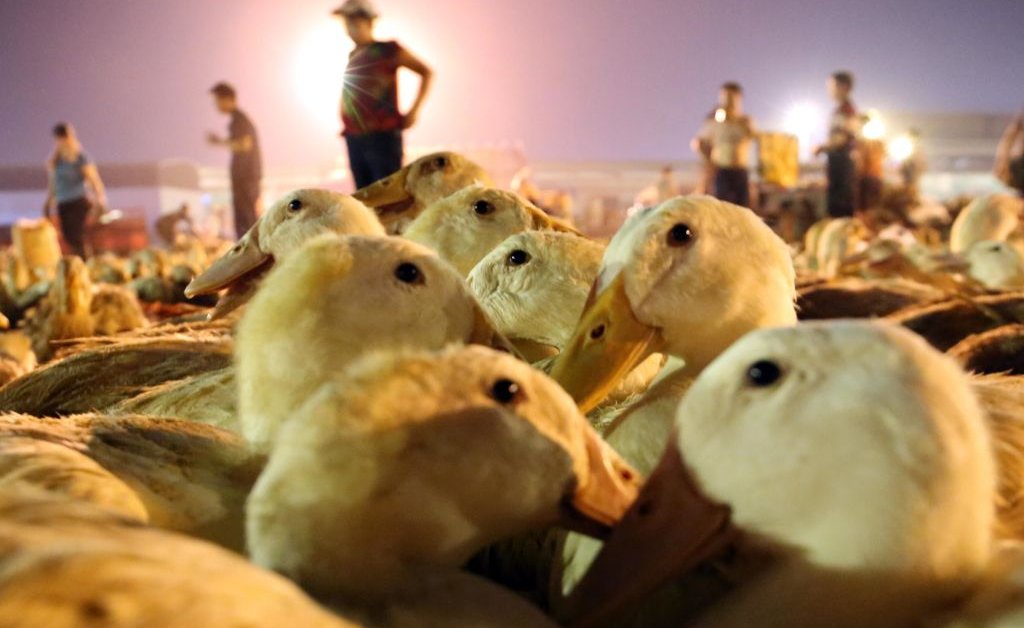Running out of time: East Africa faces new locust threat
by Reuters
Thursday, 27 February 2020 13:00 GMT
The locusts are swiftly breeding and their numbers could increase 400-fold by June if the infestation is left unchecked, the UN has warned
By Omar Mohammed and Dawit Endeshaw
NAIROBI/ADDIS ABABA, Feb 27 (Reuters) - Countries in East Africa are racing against time to prevent new swarms of locusts wreaking havoc with crops and livelihoods after the worst infestation in generations.
A lack of expertise in controlling the pests is not their only problem: Kenya temporarily ran out of pesticides, Ethiopia needs more planes and Somalia and Yemen, torn by civil war, can't guarantee exterminators' safety.
Locust swarms have been recorded in the region since biblical times, but unusual weather patterns exacerbated by climate change have created ideal conditions for insect numbers to surge, scientists say.
Warmer seas are creating more rain, wakening dormant eggs, and cyclones that disperse the swarms are getting stronger and more frequent.
In Ethiopia the locusts have reached the fertile Rift Valley farmland and stripped grazing grounds in Kenya and Somalia. Swarms can travel up to 150 km (93 miles) a day and contain between 40-80 million locusts per square kilometre.
If left unchecked, the number of locusts in East Africa could explode 400-fold by June. That would devastate harvests in a region with more than 19 million hungry people, the U.N. Food and Agriculture Organization (FAO) has warned.
Uganda has deployed the military. Kenya has trained hundreds of youth cadets to spray. Lacking pesticides, some security forces in Somalia have shot anti-aircraft guns at swarms darkening the skies.
Everyone is racing the rains expected in March: the next generation of larvae is already wriggling from the ground, just as farmers plant their seeds...
Read more: https://news.trust.org/item/20200227122340-3t5r8
by Reuters
Thursday, 27 February 2020 13:00 GMT
The locusts are swiftly breeding and their numbers could increase 400-fold by June if the infestation is left unchecked, the UN has warned
By Omar Mohammed and Dawit Endeshaw
NAIROBI/ADDIS ABABA, Feb 27 (Reuters) - Countries in East Africa are racing against time to prevent new swarms of locusts wreaking havoc with crops and livelihoods after the worst infestation in generations.
A lack of expertise in controlling the pests is not their only problem: Kenya temporarily ran out of pesticides, Ethiopia needs more planes and Somalia and Yemen, torn by civil war, can't guarantee exterminators' safety.
Locust swarms have been recorded in the region since biblical times, but unusual weather patterns exacerbated by climate change have created ideal conditions for insect numbers to surge, scientists say.
Warmer seas are creating more rain, wakening dormant eggs, and cyclones that disperse the swarms are getting stronger and more frequent.
In Ethiopia the locusts have reached the fertile Rift Valley farmland and stripped grazing grounds in Kenya and Somalia. Swarms can travel up to 150 km (93 miles) a day and contain between 40-80 million locusts per square kilometre.
If left unchecked, the number of locusts in East Africa could explode 400-fold by June. That would devastate harvests in a region with more than 19 million hungry people, the U.N. Food and Agriculture Organization (FAO) has warned.
Uganda has deployed the military. Kenya has trained hundreds of youth cadets to spray. Lacking pesticides, some security forces in Somalia have shot anti-aircraft guns at swarms darkening the skies.
Everyone is racing the rains expected in March: the next generation of larvae is already wriggling from the ground, just as farmers plant their seeds...
Read more: https://news.trust.org/item/20200227122340-3t5r8

Comment